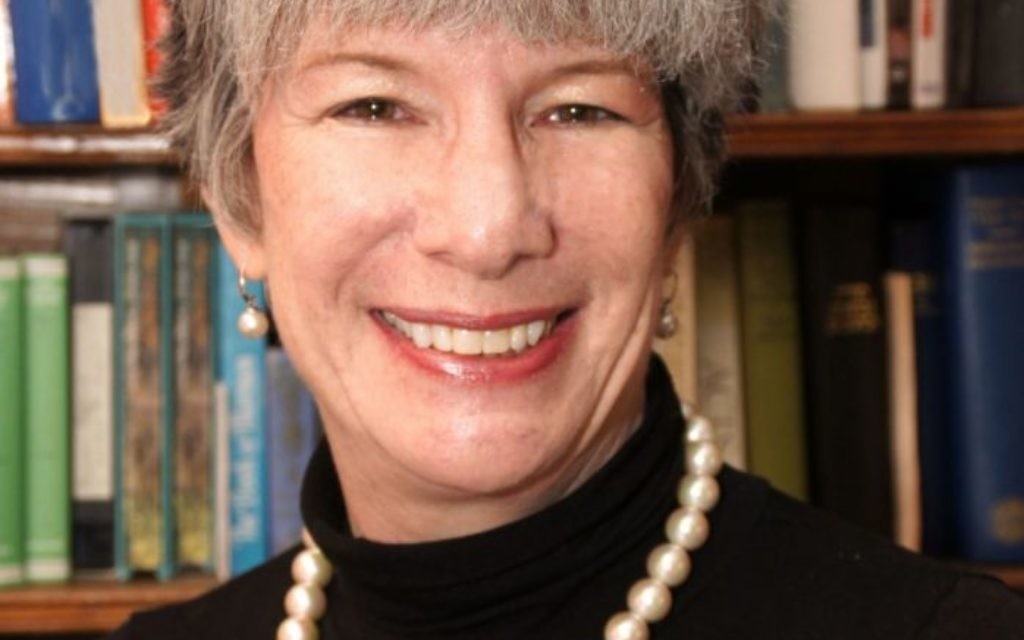Sinai, Church to Share Worship, Bible Study
Temple Sinai and Holy Innocents’ Episcopal Church are taking interfaith relations to the next level in January with a weekend in which the neighboring Sandy Springs religious communities study and worship together with a leading Jewish scholar of the New Testament.
The weekend with Vanderbilt University professor Amy-Jill Levine is a natural extension of the longtime relationship between Sinai and Holy Innocents’, which have run smaller programs together and have used each other’s buildings for worship when renovations have made their own facilities unavailable.
“These are two groups of people that have supported one another for generations,” said the Rev. Michael Sullivan, the rector at Holy Innocents’. “I’m lucky enough to have inherited a rich tradition of mutual respect and honoring of our faith journeys.”
Get The AJT Newsletter by email and never miss our top stories Free Sign Up
Temple Sinai Senior Rabbi Ron Segal called Father Sullivan “a wonderful leader and dear friend” with whom he has taught educational programs, and the two congregations’ relationship building has included participation in a four-year interfaith initiative called Reclaiming the Center.
But they haven’t brought in a scholar or worshipped together.
“This is a new kind of shared experience,” Rabbi Segal said. “We’re really going to be intentional about welcoming as many of their congregants as possible” for Friday night worship and dinner and Saturday Scripture study, then bringing as many Sinai members as possible to Sunday morning worship and study at the church.
He said he’s excited about the opportunity to study for the first time with Levine, an idea Father Sullivan raised. “We immediately jumped on the opportunity.”
Father Sullivan has studied with Levine and said she is a “dynamic, challenging professor who doesn’t let you hide behind easy answers.”
Levine teaches Jewish studies and the New Testament at Vanderbilt and is known, among other scholarly work, for serving as co-editor of “The Jewish Annotated New Testament.”
“The New Testament is a book substantially written by and about Jews, so it is part of Jewish history. It has also been used by anti-Semites and other groups for tragic ends,” she said about why she studies the Christian Bible. “I am interested in recovering Jewish history; more, I am interested in helping people see how the Bible should function to promote love and compassion, not hate and violence.”
She is scheduled to address common mistakes Christians and Jews make about each other during Friday night services and the Good Samaritan in his Jewish context during Sunday morning worship. She’ll lead a Saturday morning study session on how Jews and Christians read Scripture differently and a Sunday school session on reading Jesus’ parables as Jewish stories, the topic of her latest book.
Such interfaith worship and study weekends are increasingly common, Levine said. “The point is not for everyone to hold hands and sing ‘Kumbaya.’ We do not sacrifice our own tradition on the altar of interfaith sensitivity. Rather, the point is to learn more about each other and about the texts and traditions we hold sacred.”
The shared experience should be full of joy and laughter and not be a matter of challenging faith, she said. “Belief is like love: It is not something one chooses; it is a matter of the heart, not the intellect.”
Biblical study enhances the faith of believers and teaches history, literature and ethics for those who are not believers, Levine said.
“We’re pulling back the veil a little bit. We’re removing some of the mystery about what happens at our houses of worship so we appreciate one another and our communities,” Rabbi Segal said. “The more we learn and see how much, with the exception of a few theological distinctions, the more we share as people of faith and citizens of the community, the more it enables us to try to work together to make a difference.”
Participating in each other’s regular worship services won’t change anyone or lead to conversions, Father Sullivan said. Instead, “being together in the context of worship, we see and explore the depth of who people are.”
And in a world in which religion too often is used as a reason for violence, opportunities to respect and celebrate differences should be applauded, he said. “Weekends like this allow us to take this relationship even deeper and not just rely on artificial, easy articulation of why we get along.”
- Who: Vanderbilt scholar Amy-Jill Levine
- What: Weekend of study and worship
- When: 5:45 p.m. reception, 6:30 p.m. service and 7:30 p.m. dinner Friday, Jan. 8; 9 a.m. study Saturday, Jan. 9; 9 a.m. worship and 10:10 a.m. study Sunday, Jan. 10
- Where: Temple Sinai, 5645 Dupree Drive, on Friday and Saturday and Holy Innocents’ Episcopal Church, 805 Mount Vernon Highway, on Sunday, both in Sandy Springs
- Cost: Everything is free and open to the public except for the Friday dinner, which is $18; register at templesinaiatlanta.org or www.holyinnocents.org





comments